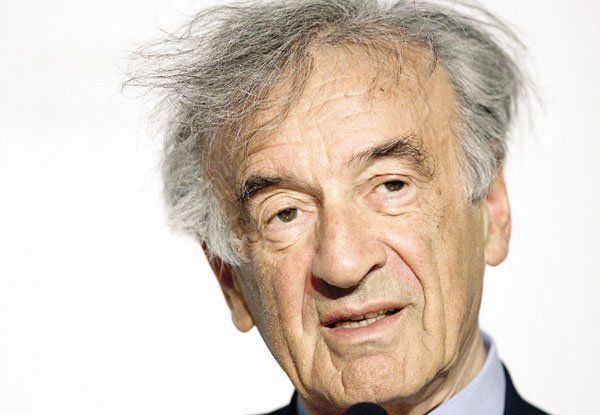With her latest book club pick, Oprah has again raised issues of
what’s real and what’s not in the literary world
By Hillel Italie, The Associated Press
New York – Another Oprah book club pick has raised the issue of fact vs. fiction.
Barnes & Noble.com and Amazon.com both said Tuesday that they were making changes to certify Elie Wiesel’s “Night” as nonfiction. Barnes & Noble.com is removing the book from its fiction list, while Amazon.com is also changing the categorization of “Night” and revising an editorial description to make clear that it does not consider the book a novel.
“We hope to make these changes as quickly as possible,” said Jani Strand, a spokeswoman for Amazon.com.
Wiesel did not immediately return a call from The Associated Press seeking comment.
On Monday, Winfrey announced that Wiesel’s classic account of his family’s placement in the Auschwitz death camp was her latest choice. “Night” quickly topped the best seller list on Amazon.com, displacing Winfrey’s previous selection, James Frey’s “A Million Little Pieces.”
Frey’s story of substance abuse has been widely disputed, with the author acknowledging that he had embellished parts of the book, as reported by the investigative Web site, The Smoking Gun. Frey and Winfrey have defended “A Million Little Pieces,” saying any factual problems were transcended by the book’s emotional power.
No such allegations are being made about “Night,” but there has long been confusion over how to label it. While Wiesel and his publisher, Farrar, Straus & Giroux, call it a memoir, “Night” is frequently listed as fiction on course syllabuses and was called a novel in a 1983 New York Times review of a Wiesel biography. “Night” is described in an Amazon.com editorial review as “technically a novel,” albeit so close to Wiesel’s life that “it’s generally – and not inaccurately – read as an autobiography.”
Wiesel first wrote the book in the 1950s in Yiddish, then translated it into French. Hill & Wang, which Farrar, Straus now owns, published the original English-language edition in 1960. Wiesel’s wife, Marion Wiesel, has translated the current English version.
Amazon.com has been categorizing the new edition of “Night” under “literature and fiction,” but is switching the book to “biographies and memoirs,” blaming the problem on its “data source.”
“Amazon.com’s data source for the Oprah’s Book Club edition of `Night’ inaccurately classified the book as fiction,” said Strand, who declined to offer details.
Meanwhile, Amazon’s editorial description of an earlier edition, published by Bantam in the 1980s, is being edited “to make it explicitly clear that `Night’ is nonfiction,” Strand said. The Bantam version, which is already classified under “biographies and memoirs,” was No. 3 on Amazon.com as of Tuesday afternoon.
Strand described such changes as “unusual,” but not rare.
Also Tuesday, “Night” topped both the “biography” and “fiction” best seller lists on Barnes & Noble.com. Barnes & Noble spokeswoman Carolyn Brown says “some initial data that was supplied to us” classified the book as fiction and was now “being corrected.”
“‘Night’ is not a fiction title and we are in the process of updating our database so that the title is not classified as such,” Brown says.
Strand says that Amazon’s changes were based on an internal review. Barnes & Noble’s announcement was in response to an inquiry from The Associated Press.
On Winfrey’s Web site, a description of the book notes that “although some facts vary slightly from his own personal and familial history, `Night’ should be considered an autobiography.” Ruth Wisse, a professor of Yiddish and comparative literature at Harvard University, considers Wiesel’s book a memoir, but says it’s often labeled fiction because of the book’s sophisticated narrative style, which resembles a novel.
Karen Hall, who has taught a course on the “literature of trauma” at Syracuse University, calls “Night” a “trauma narrative” and says such books are unavoidably subjective. She regards the book as a novel and plans to keep doing so.
“For me, then, `Night’ is 100 percent true in its call to readers to remember the Holocaust, listen to and learn from its survivors, and never to allow such an event to take place again,” says Hall, now an assistant professor at Ithaca College.
“That Wiesel would prefer it to be called a memoir doesn’t impact my understanding of the text, as once it has left the author’s desk, it is the reader’s to work with.”















